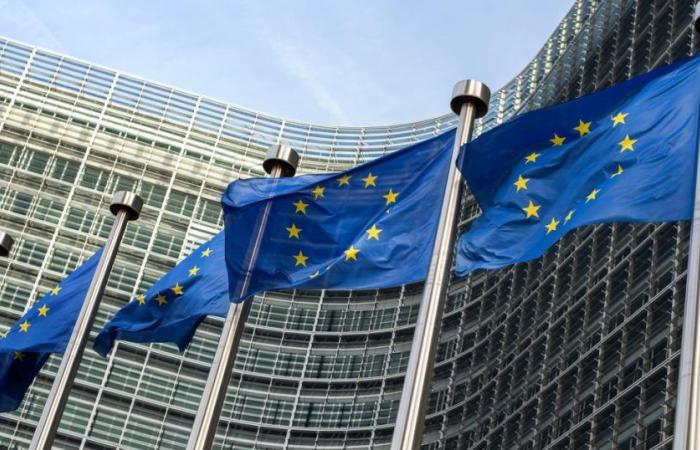
While the author of the study on the “European sentiment compass” paints an alarmist portrait of the European Union, the figures show that Europeans still have confidence in the EU and its future.
Despite the wars which have rekindled fears across the world, the recent social and health crises (last winter’s agricultural crisis, Covid-19 and its impact…), and the European elections in June which resulted in by a historic rise of far-right nationalist parties, EU citizens still believe in the European Union.
This is the observation drawn from the recent report on the «European feeling », published this September 25. This annual study jointly carried out by the European Council on Foreign Relations (ECFR) and the European Cultural Foundation (ECF) uses data provided by researchers from the 27 Member States of the European Union to assess the feelings of European citizens towards towards the EU.
Titled “Welcome to Barbieland Barbie ): What the year of wars and elections revealed about European sentiment »this report is composed of an analysis written by Pawel Zerka, ECFR project manager and creator of the “compass of the European feeling of belonging”*and several graphs based on EU-wide surveys. Collected by Standard Eurobarometer between January 2022 and April 2024, this data shows that despite the crises of the last two decades, Europeans remain predominantly attached to the European Union.
More attached to Europe than to the EU
Five questions were thus asked to European citizens from all Member States several times a year: their attachment to Europe, their attachment to the European Union, their optimism about its future, their confidence in the institution and finally whether or not they have a positive image of the EU. Two graphs were then produced with these results, one expressed as a percentage, the other showing the given sentiment of a majority of citizens in the 27 EU member states.
ECFR
The first observation that we draw from these figures is the attachment of Europeans to Europe, the territory conventionally defined as a continent. Thus in April 2024, 69% of EU citizens surveyed declared themselves “attached to Europe”. At the state level, 26 of the 27 EU member states have a majority of citizens “attached to Europe”as shown in the second graph.
On the other hand, Europeans seem less attached to the institution of the European Union. Thus, 61% of EU citizens declare themselves attached to the institution in April 2024, a fairly stable share although it was 58% in January 2022 and May 2023. However, we observe that last April , the majority of citizens in 25 of the 27 Member States were “attached to the European Union”. A figure on the rise since in January 2022, only those in 22 states were “attached to the EU”.
ECFR
The attachment to the European Union of its citizens does not mean that they trust it or that they have a positive image of it. Only 49% of them declare “trust the EU” in April 2024, and 44% say they have “a positive image”. At the national level, we observe that between January 2022 and April 2024, more and more countries have a majority of citizens who have “trust in the EU”. Indeed, in January 2022, only 14 countries had a majority of citizens trusting the EU. There are 20 in April 2024.
The image that Europeans have of the European Union has fluctuated greatly within States over the last 28 months. In January 2022, only 4 Member States had a majority of citizens with “a positive image of the EU”. There were then 12 in June 2022, 9 in January 2023, then 13 in May of the same year, 11 in October and more than 10 in April 2024.
Another paradox, despite a not necessarily positive image of the EU and a very relative confidence in the institution, many more Europeans have confidence in its future (62% in April 2024). Additionally, 25 member states have a majority of citizens optimistic about the future of the EU over the entire given period, peaking at 26 countries in May 2023 and April 2024.
“Blind spots”, a threat to the European project?
However, despite these rather positive figures, the author of the report Pawel Zerka paints a rather negative picture of Europe in his analysis. The latter highlights several “blind spots” who could, according to him, “threaten the future of the European project”. It in fact notes a «sous participation» of several groups within the EU: young people, non-whites, Muslims and citizens of Central and Eastern European countries, who would feel “excluded”, “disillusioned” or “selfless” by European Union policy. The author of the study also warns of a drift “xenophobic”, “ethnic” et “closed-minded” of the EU.
He notes, however, that despite a year of wars (Ukraine, Middle East) and elections (European and national legislative), a large number of citizens in almost all EU member states continue to trust the Union, are optimistic about its future and feel attached to it. The overall high turnout in this year’s European elections (50.74%, the highest rate since 1994) and the fact that the vast majority of governments in the 27 member states remain pro-European in terms of outlook and policies bear witness to of the strength that European sentiment retains, overall.
* The European feeling compass is defined as the feeling of belonging to a common space, of sharing a common future and of subscribing to common values.





